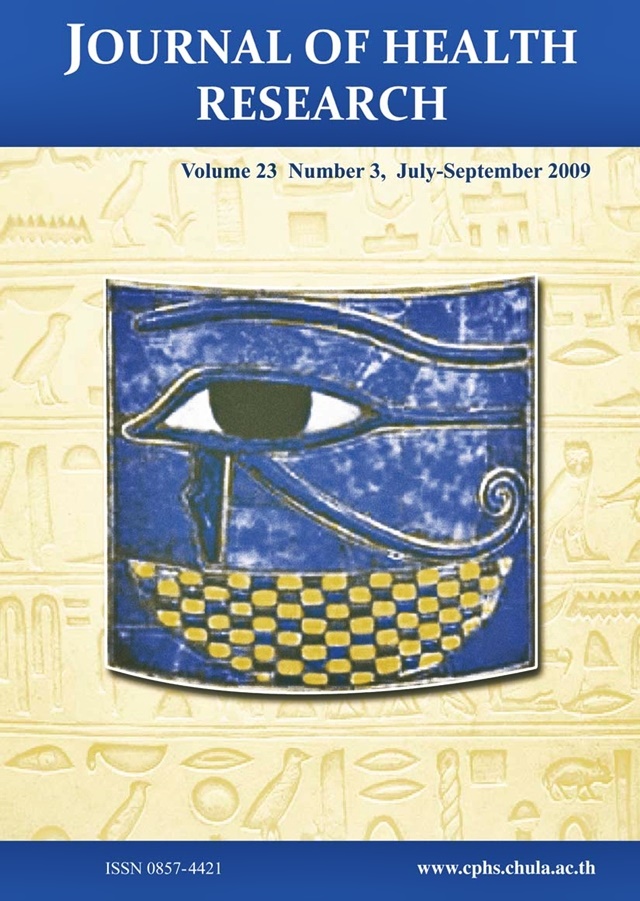Hypoglycemic Effect of Tinospora crispa Dry Powder in Outpatients with Metabolic Syndrome at King Chulalongkorn Memorial Hospital
Keywords:
Tinospora crispa dry powder, hypoglycemic effect, metabolic syndromeAbstract
To determine the hypoglycemic effect of Tinospora crispa dry powder in patients with metabolic syndrome, a randomized double–blind placebo-controlled, crossover design was conducted at the outpatient internal medicine clinic at King Chulalongkorn Memorial Hospital during October 2008 to March 2009. Thirty-six patients who met the NCEP III criteria guideline for metabolic syndrome were included and randomly assigned to receive 250 mg T. crispa dry powder capsule or placebo twice a day for 2-months treatment period. It was found that patients who received T. crispa dry powder had significantly decreased fasting blood glucose level from the baseline (4.03 ± 11.35 mg/dl, p=0.027, median=4.00 mg/dl, n=36). Patients who received T. crispa for the first 2 months also had significantly reduced fasting blood glucose level which is statistically different from the baseline (6.29 ± 10.47 mg/dl, p=0.007, median=8.00 mg/dl, n=24). Adherence was assesses by the pill count method. The results showed that 91.6% of patients adhered to T. crispa. Seventy-two percent of the patients did not have significantly different calorie intake between the T. crispa and placebo groups. Also statistically, there was no significant difference in body weights between the T. crispa and placebo groups during the study period (p=0.920). An elevation of more than 3 times baseline levels of aspartate aminotransferase and alanine aminotransferase was found in 16.7% of the samples.







